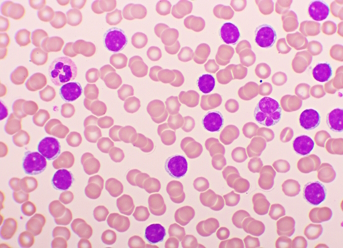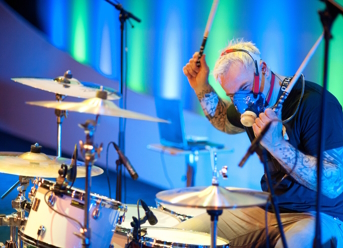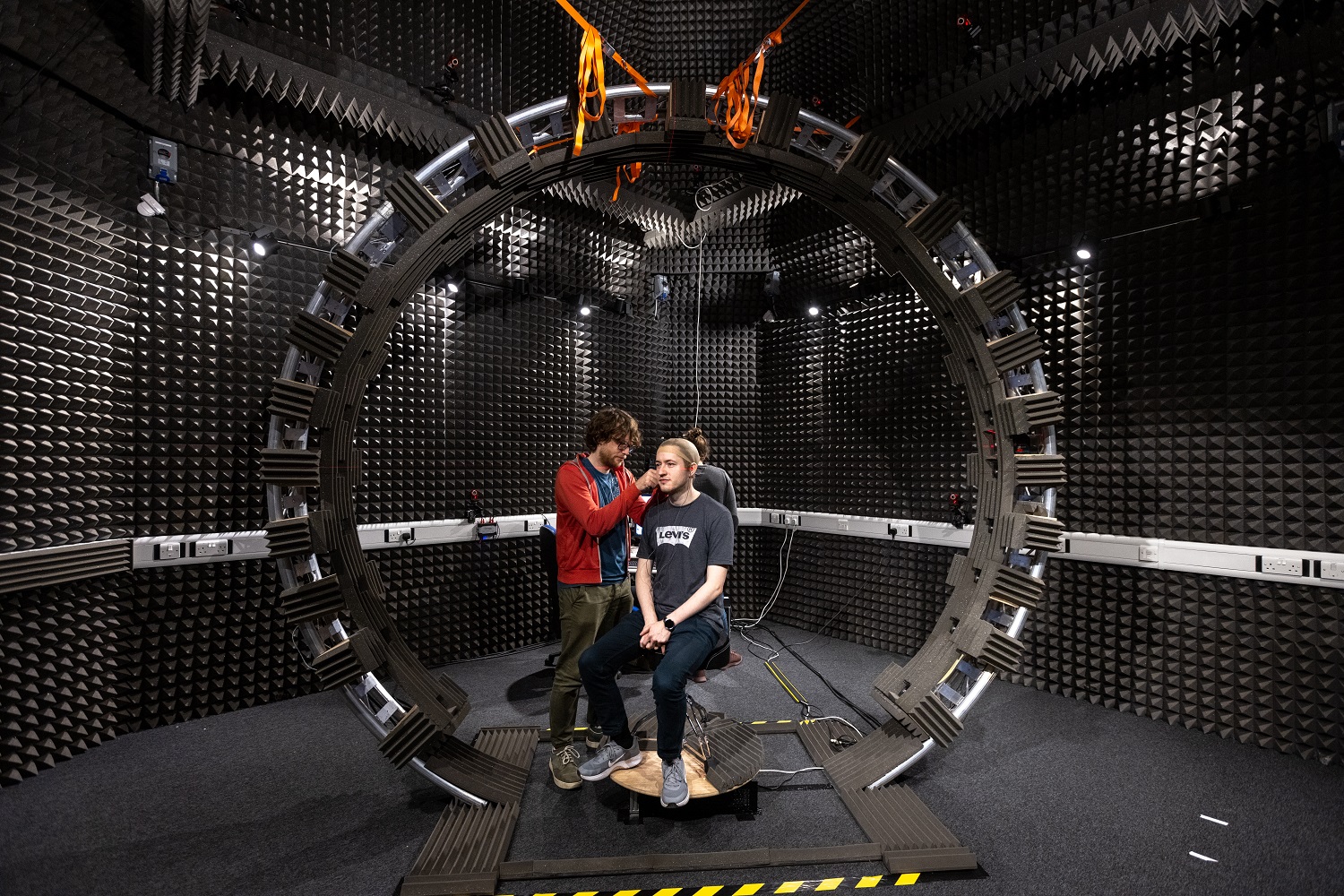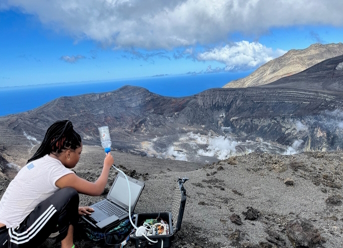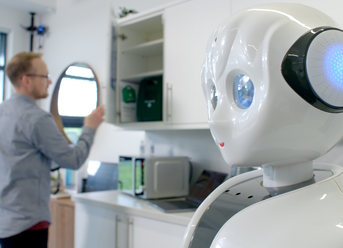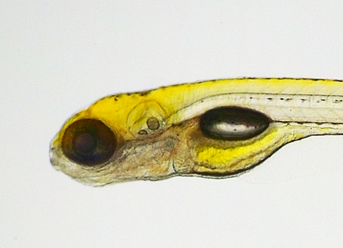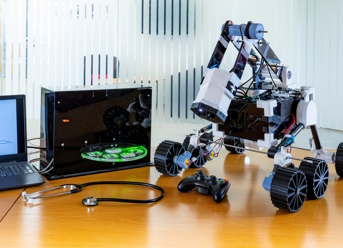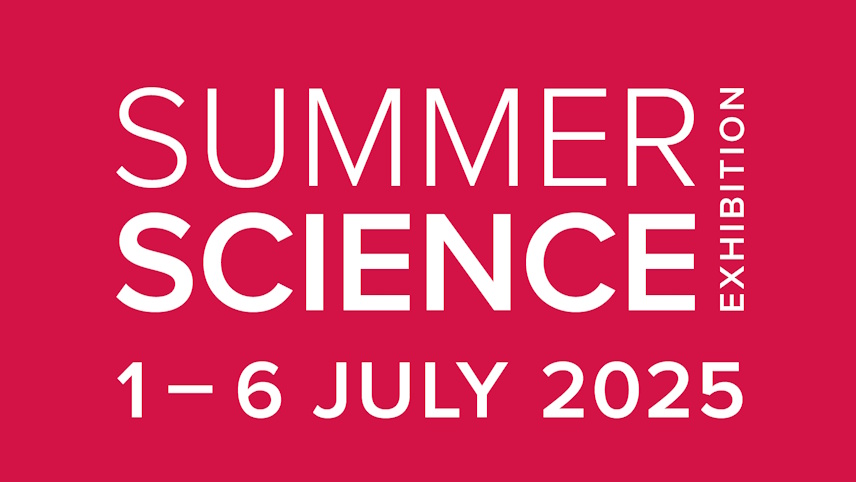All exhibits
Tuesday 4 - Sunday 9 July 2023 | 6 - 9 Carlton House Terrace, London, SW1Y 5AG
With nine flagship exhibits and a special Young Researcher Zone exhibit exploring the very latest advances in science and access to over three hundred scientists, the Summer Science Exhibition offers a unique opportunity to explore the science shaping our future with the people making it happen.
ChromaDose: improving chemotherapy for children
Individual responses to a given treatment dosage can vary greatly. This is particularly true in chemotherapy for childhood cancers, where too high a dosage can also increase the risks of longer-term health effects. The ChromaDose team at UCL in partnership with the University of Newcastle are developing bedside blood-testing tools alongside young people and health professionals, to help personalise treatment, improve outcomes, and reduce side effects and costs.
Drumming for health
Can you drum your way to a healthier life? Your feet might thump to the beat of the music during a run, but drumming yourself fit could be another way to workout, according to research led by the University of Essex, with the University of Chichester, Kings College London, and Hartpury University. Meet professional drummers and pick up the sticks yourself while watching your heart rate and oxygen levels respond.
From Mars to humans
Can the technology used to search for life on Mars help detect diseases within our own bodies? Drive a replica Mars Rover and meet the teams from the universities of Edinburgh, Nottingham and Southampton developing non-invasive technologies that might help diagnose and monitor bone disease in older people without requiring repeat exposure to x-ray radiation.
Virtual audio: illusion or reality?
We all process sounds in a way unique to us. This team from Imperial College London is attempting to personalise virtual audio – using the shape and size of our head and ear canal – to make it indistinguishable from real life. The work could also help improve hearing for people with a sensory impairment. Get your own head scanned and learn just how much your ears may deceive you.
Gene-ius fish: diving into human mental health with zebrafish
We share roughly 70% of our genes with zebrafish, so could they offer insights into the human mind? The team from Queen Mary University of London are using gene editing techniques in zebrafish to better understand mental health conditions – like schizophrenia, ADHD and addiction – to improve existing treatments and develop new drugs.
Sensing volcanoes
What if you shared a postcode with a volcano? Meet the teams from the universities of Oxford, East Anglia and the West Indies, studying the sights, smells, sensations and sounds of past eruptions to understand when another might be imminent –and mitigate its impact. Visitors can hear seismic shifts and smell the scents of an active Caribbean volcano, then play the game, ‘The Floor is Magma!’, to test their decision-making skills.
Micro-robotics for eye surgery
Get to grips with the robotic tools that can help surgeons operate inside the eye and the tiniest structures of the body. These robots from King’s College London move like an elephant’s trunk, flexing and altering shape to mimic the dexterity of the human hand. Watch the robot at work and see how you compare.
Revolutionising rehabilitation
Serious illness or injury can be life-changing but needn’t be life-limiting. The National Rehabilitation Centre, led by Loughborough University, the University of Nottingham and the Nottingham University Hospitals NHS Trust, is looking at innovative technologies that could transform personalised rehabilitation. From lab-grown muscles to aid tissue recovery to self-powered clothing that can help monitor activity and maintain independence, the technology is as varied as the patients.
Measuring electricity by counting electrons
From your phone charger to your hair straighteners, electricity powers our lives. Meet the researchers from the National Physical Laboratory attempting to measure electricity to make a universal standard of electrical current that can be used by scientists and engineers anywhere in the world. Create your own perfect standard of electrical current by moving electrons through a circuit at your control.
Meet the next generation at the Young Researcher Zone, Wednesday 5 - Friday 7 July
The Young Researcher Zone showcases science being undertaken by school students across the UK as part of the Royal Society’s Partnership Grants scheme. With 10 different schools exhibiting over the three days, hear from students about their research projects on a range of topics, including how exams affect sleeping patterns in school children, what secrets can be found in Daffodil DNA, and how lasers and camera traps can help to assess biodiversity in your local area.
Find out more about the exhibitors' research in the links below.

